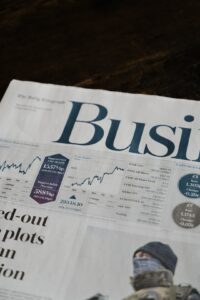The Ethics of Using Data in Forex Trading: A Discussion
Forex trading is a highly competitive and complex market that requires traders to make informed decisions based on various forms of data. In recent years, the availability and accessibility of data have increased exponentially, thanks to advancements in technology. However, with this increase in data comes a pressing ethical question: how should traders use data in their forex trading practices?
Data plays a crucial role in forex trading. Traders rely on data to analyze market trends, make predictions, and execute trading strategies. The use of data can vastly improve trading outcomes, as it provides valuable insights into market behavior and helps traders make more informed decisions. But, using data in forex trading also raises ethical concerns that traders need to consider.
One of the main ethical concerns associated with using data in forex trading is the issue of insider trading. Insider trading occurs when a trader uses confidential or non-public information to gain an unfair advantage in the market. This unethical practice undermines the integrity of the market and creates an uneven playing field for all participants. Traders should never use insider information to make trading decisions, as it is illegal and can lead to severe penalties.
Another ethical concern is the use of personal data in forex trading. With the rise of online trading platforms and social media, traders often have access to a vast amount of personal information about individuals. This includes their financial status, trading history, and even personal preferences. While this data can provide valuable insights, traders must handle it responsibly and ethically. Traders should respect the privacy of individuals and ensure that the data they use is obtained legally and with the individual’s consent.
Transparency is a fundamental ethical principle that should guide the use of data in forex trading. Traders should be transparent with their clients, partners, and regulators about the data they use and how they use it. This includes disclosing the sources of the data, the methodologies used for analysis, and any potential conflicts of interest. Transparency builds trust and ensures that trading practices are fair and accountable.
Data integrity is another critical ethical consideration. Traders should ensure that the data they use is accurate, reliable, and up-to-date. Using inaccurate or outdated data can lead to incorrect trading decisions, which may result in financial losses for traders and their clients. Traders should also be cautious of manipulated or biased data, as it can distort their analysis and lead to unethical trading practices.
The use of algorithmic trading systems also raises ethical concerns in forex trading. Algorithmic trading relies on complex mathematical models and algorithms to execute trades automatically. While these systems can be highly efficient, they can also lead to unintended consequences. For example, algorithmic trading can exacerbate market volatility or lead to flash crashes. Traders who use algorithmic trading systems must ensure that their algorithms are well-designed and thoroughly tested to minimize the potential for negative impacts on the market.
Regulation and oversight play a crucial role in ensuring ethical practices in forex trading. Regulatory bodies, such as the Securities and Exchange Commission (SEC) in the United States or the Financial Conduct Authority (FCA) in the United Kingdom, set rules and guidelines to protect market integrity and prevent unethical behavior. Traders should adhere to these regulations and work with reputable brokers and platforms that operate within the legal framework.
In conclusion, the use of data in forex trading raises important ethical considerations that traders must address. Traders should avoid insider trading, respect individuals’ privacy, be transparent about their data sources and methodologies, ensure data integrity, and be cautious when using algorithmic trading systems. By embracing ethical practices, traders can contribute to a fair and transparent forex market that benefits all participants.






